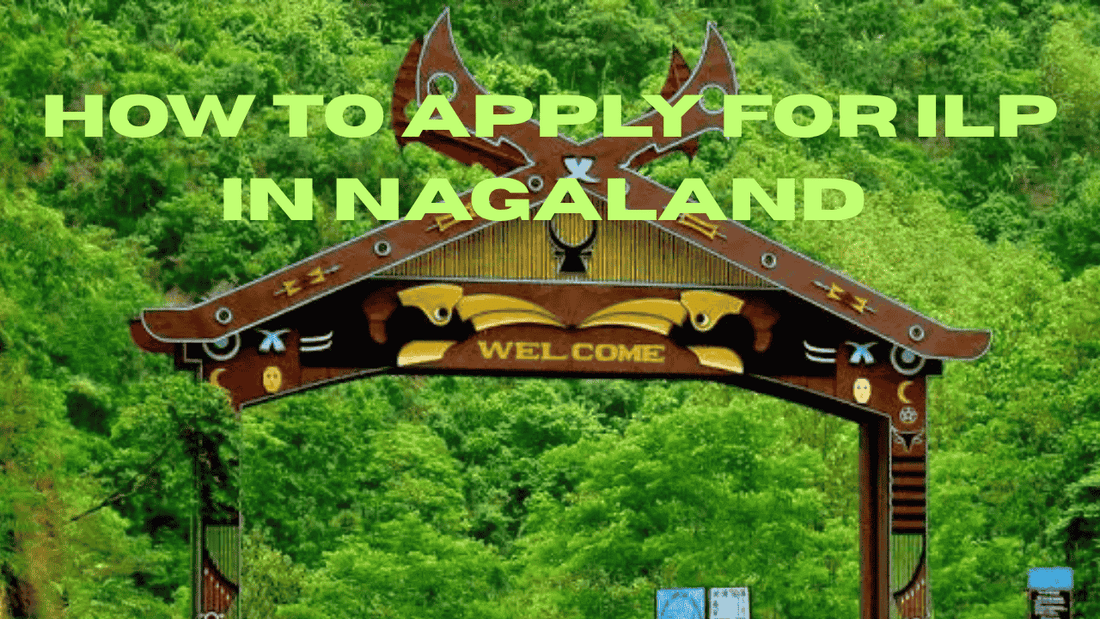
How to Apply for ILP in Nagaland: Process, History, and Why It Matters
Share
By Aloto Naga 29 May 2025 - The Inner Line Permit (ILP) is a vital travel document required by non-indigenous Indian citizens to enter the state of Nagaland. With increasing interest in travel, employment, and migration into the Northeast, understanding the ILP system has become essential. This article provides a comprehensive guide on how to apply for ILP in Nagaland, while also highlighting the historical roots and socio-political significance of this mechanism.
What is the ILP and Why is it Required in Nagaland?
The Inner Line Permit is a legal document mandated under the Bengal Eastern Frontier Regulation Act of 1873, originally introduced during British colonial rule to protect tribal areas in the Northeast. In Nagaland, the ILP remains in force as a constitutional safeguard to preserve the identity, culture, and land rights of its indigenous communities.
Nagaland also enjoys special protections under Article 371A of the Indian Constitution, which grants the state autonomy in matters relating to religion, social practices, customary laws, and ownership of land and resources. The ILP system aligns with this constitutional provision, serving as a buffer against unchecked migration and cultural erosion.
How to Apply for ILP in Nagaland (Updated Process for 2025)
As of January 1, 2025, Nagaland has fully transitioned to a digital ILP application system, simplifying access for visitors while maintaining robust verification procedures.
Step-by-Step ILP Application Process:
1. Visit the Official ILP Portal:
Website: https://ilp.nagaland.gov.in
2. Register an Account:
Create a user ID with a valid email and mobile number. Set up a secure password.
3. Fill in the Application Form:
Provide personal details, reason for visit, intended duration of stay, address in Nagaland, and upload a recent passport-size photo.
4. Upload Required Documents:
Government-issued ID proof (Aadhaar, Passport, Voter ID, etc.) Travel itinerary or supporting letter (if applicable)
5. Pay the Application Fee:
Payment can be made securely through the online portal via UPI, net banking, or card.
6. Download the ILP:
Upon approval, the digital ILP will be issued and must be carried during your stay.
Categories of ILP:
- Temporary ILP: For short visits, tourism, or business travel.
- Regular ILP: For longer stays, employment, or education (subject to verification).
- Exempted Residents: Individuals settled in Dimapur before December 1, 1963, may apply for a Permanent Resident Certificate (PRC) or Domicile Certificate instead of an ILP.
ILP Expansion and Government Policy Updates
The Nagaland government expanded the ILP requirement to include Dimapur, Chümoukedima, and Niuland districts following a state cabinet decision on September 11, 2024. These areas were previously excluded, but rising concerns over unregulated migration prompted their inclusion.
The move was widely supported by local civil society organisations who have long warned about the demographic and cultural risks posed by non-indigenous settlement.
Past Controversies and Opposition
Over the years, various groups have raised concerns regarding the implementation and enforcement of the ILP. One notable voice has been the Dimapur Naga Students’ Union (DNSU), which criticised the state for delays in regulating influx into non-ILP areas like Dimapur. The group argued that lack of strict control could lead to demographic imbalances and loss of indigenous identity.
More recently, in early 2025, a controversy emerged after an AI-generated video went viral, accusing the ILP system of being discriminatory toward certain communities, particularly Hindus. Legal analysts and local stakeholders quickly clarified that the ILP is not religiously motivated but is grounded in constitutional provisions meant to protect indigenous rights and cultural autonomy.
Why ILP Remains Important in Nagaland
Nagaland’s social fabric is deeply tied to its tribal heritage, customary laws, and local governance structures. The ILP is not just a regulatory measure—it is a cultural and constitutional tool that reflects the state’s unique position within the Indian Union.
In a rapidly globalising world, where migration and economic exchange are on the rise, the ILP serves to balance development with preservation, ensuring that Nagaland’s future is shaped by its own people without losing the essence of its identity.
For More Information or to Apply:
Visit the official ILP portal at https://ilp.nagaland.gov.in

Aloto Naga is the editor and publisher of NagalandAI.com. A pioneer in digital media, he launched the first Nagamese news channel on YouTube and currently runs Aloto Naga TV, with over 376,000 subscribers and 1 billion+ views. Formerly editor of NagalandEnglish, he has a background in journalism and education, including seven years teaching English and public speaking in South India. Aloto continues to mentor young creators and is committed to factual, independent journalism in Nagaland. 📧 info@NagalandAI.com | news@NagalandAI.com | ads@NagalandAI.com | help@NagalandAI.com 📞 +91 63833 59495

 https://nagalandai.com/pages/about-the-author
https://nagalandai.com/pages/about-the-author